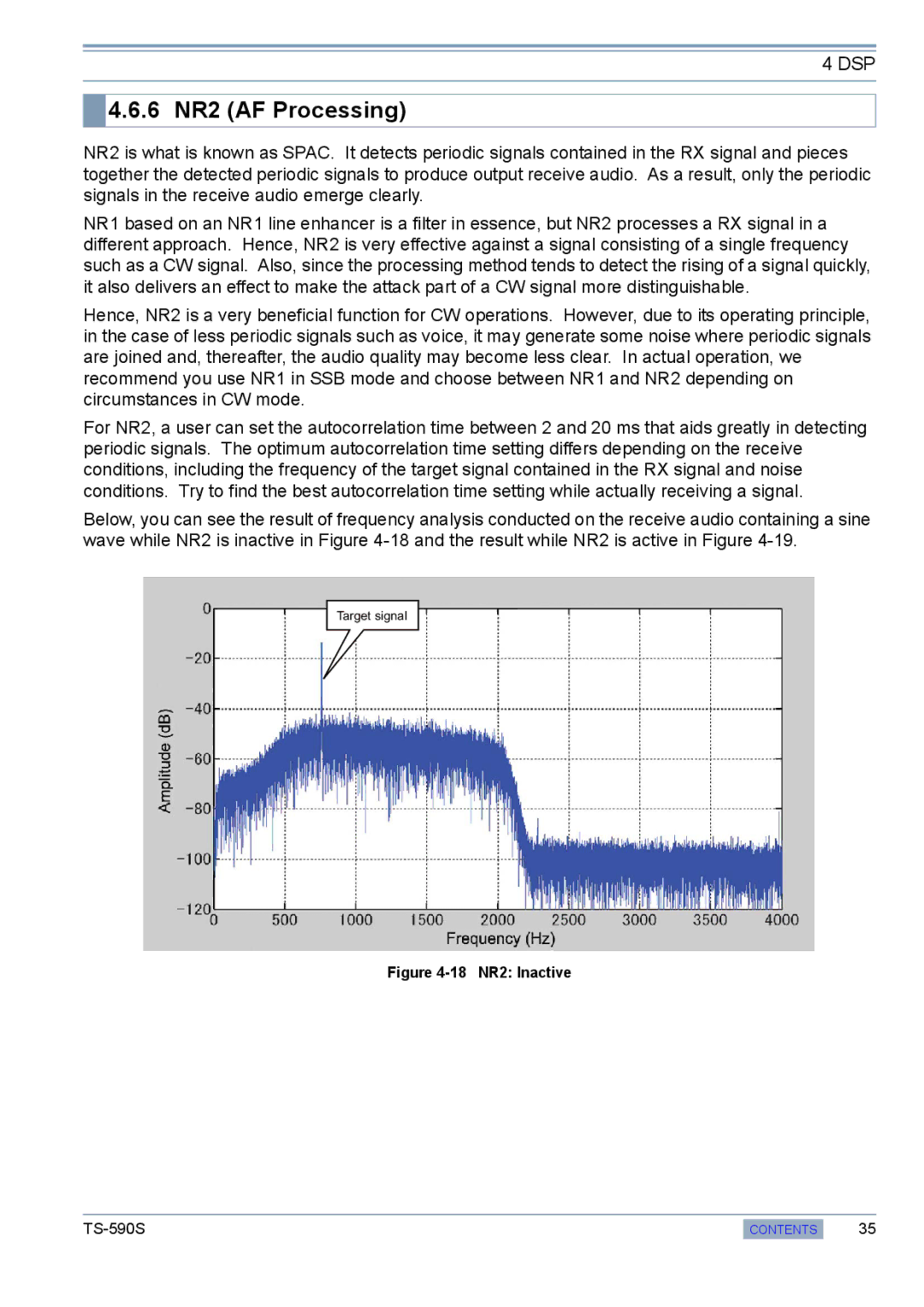
4 DSP
 4.6.6 NR2 (AF Processing)
4.6.6 NR2 (AF Processing)
NR2 is what is known as SPAC. It detects periodic signals contained in the RX signal and pieces together the detected periodic signals to produce output receive audio. As a result, only the periodic signals in the receive audio emerge clearly.
NR1 based on an NR1 line enhancer is a filter in essence, but NR2 processes a RX signal in a different approach. Hence, NR2 is very effective against a signal consisting of a single frequency such as a CW signal. Also, since the processing method tends to detect the rising of a signal quickly, it also delivers an effect to make the attack part of a CW signal more distinguishable.
Hence, NR2 is a very beneficial function for CW operations. However, due to its operating principle, in the case of less periodic signals such as voice, it may generate some noise where periodic signals are joined and, thereafter, the audio quality may become less clear. In actual operation, we recommend you use NR1 in SSB mode and choose between NR1 and NR2 depending on circumstances in CW mode.
For NR2, a user can set the autocorrelation time between 2 and 20 ms that aids greatly in detecting periodic signals. The optimum autocorrelation time setting differs depending on the receive conditions, including the frequency of the target signal contained in the RX signal and noise conditions. Try to find the best autocorrelation time setting while actually receiving a signal.
Below, you can see the result of frequency analysis conducted on the receive audio containing a sine wave while NR2 is inactive in Figure
Target signal
Figure 4-18 NR2: Inactive
CONTENTS
35
